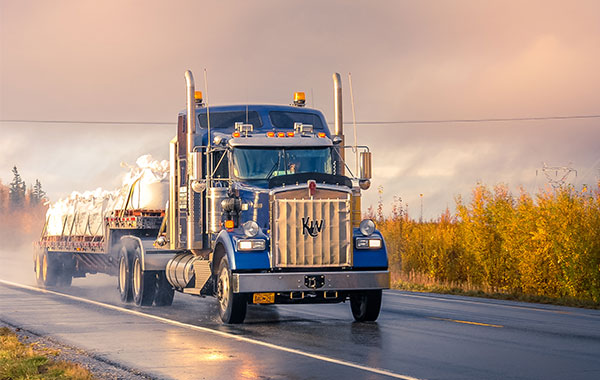Transportation can be an expensive, but necessary part of COGs (cost of goods sold) for any business, and in competitive industries like food manufacturing and agriculture, logistics wastage can be the beginning of the end. So how can businesses reduce their logistics costs and improve their supply chain efficiency?
Focus on freight density
Freight density is the measurement of a shipment relative to its size. The higher the density, the lower your freight classification and the cost (per kilogram to transport) can be. Consider it a measure of how efficiently space is being used in transportation, relative to weight. The bigger and lighter it is, the more expensive it is to transport.
Choosing a nested storage option like A Plus Plastics’ Lock and Save Produce Bins or A Plus Plastic’s Heavy Duty Collapsible Bulk Pallet Bin means that when empty, containers can be nested into each other or collapsed avoiding the transportation of empty void or air, lowering your freight class (and allowing you to fit more into every trip). Lock and Save Produce Bins have been designed to save up to 30% in logistics wastage which can have a serious impact on the bottom line in both the short and long term.
Ship more, less often
Depending on your storage capabilities onsite, ordering bigger and holding higher stock on hand may be more cost effective than a higher volume of smaller orders with freight costs attached to each one. Logistics costs can bloat quickly to accommodate convenience so consider consolidating your orders (this can be particularly effective when your business is located outside of major metro regions).
Reshore procurement
Businesses procuring offshore have been exposed to supply chain disruptions and increased logistics costs post-pandemic. Offshore procurement has its own challenges and limitations that can exacerbate international freight costs related lumpy logistics and mixed containers. Local manufacturers and suppliers are often as cost competitive as international suppliers and without the added costs related to international freight, can save your business significantly.
Centralise procurement
Think you’re saving by shopping with multiple suppliers? Maybe not. A centralised approach to product procurement may offer its own cost savings outside of logistics and transportation, but as a start, buying from a single supplier means one set of transportation costs. Choosing a supplier that can dispatch across Australia becomes particularly important when your business has multiple locations or is spread across more than one state.
Reducing transportation costs can facilitate serious reinvestment into other areas of your business or add some valued fat to your business’s bottom line. Focusing on freight density, optimizing your transportation model and reviewing your procurement strategy with fewer, local suppliers can save your business in transportation costs over the long term.
A Plus Plastics provides a wide range of rigid plastic containers for industries including agriculture, food manufacturing, materials handling and supply chain logistics. Proudly Australian owned with Australian made products, the A Plus Plastics range has both HACCP food grade and recycled Reprolene™ options available. For more information on how you can save on transportation costs when buying A Plus Plastics products, contact our team.


